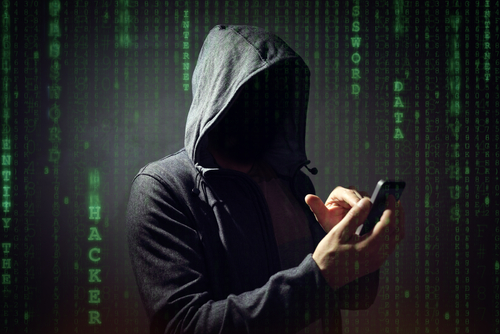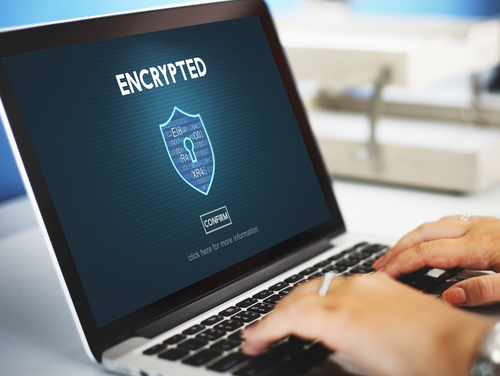WhatsApp has come under scrutiny lately for its privacy issues. They share user data with Facebook that includes several personally identifiable information. If you enjoy using this messaging app, you may be looking for an alternative to keep your information private.
These 9 best WhatsApp alternatives are much more private methods of communicating with your friends, family, and coworkers. Read on to learn about the most private and secure messaging apps out there.

The Problem with WhatsApp
WhatsApp is owned by Meta, the company that owns Facebook, and is notoriously known for its bad privacy and data-sharing policies. WhatsApp became popular in recent years because it offers end-to-end encryption (EE2E) by default for all messages, audio and video calls, and the website.
However, the application does not encrypt metadata, and on Android devices, it does not encrypt cloud backups. In January 2021, WhatApp group invite links and user profiles were found in Google searches.
This posed a serious problem. Anyone who found these links in their Google searches would then be able to join those groups. Additionally, people found that users’ data was being exposed to outsiders due to a Google indexing problem.
The issue was resolved, but for many WhatsApp users, it was too late, their data was already seen by scammers. WhatsApp also has questionable Terms of Service (ToS). Their terms require users to consent to WhatsApp sharing their data with Facebook, which has been known to hand over user data to intelligence agencies.
The ToS has garnered a lot of attention, but there is some evidence that WhatsApp has been sharing this type of information with Facebook since 2016.
The personally identifiable information (PII) included in the data sharing includes the following:
- User ID
- Device ID
- Hardware model
- Operating system
- Battery level
- Signal strength
- App version
- Browser information
- Mobile network
- Language
- Time zone
- IP address
- Phone number
- Email address
- Contacts
- Advertising data
- Payment information
This data-sharing scandal led to a backlash that led to WhatsApp changing its ToS. Some European countries worked to ban the app, but that only lasted 3 months, and now there is talk of a court battle to determine the next step in this privacy battle.
However, as of January 2023, WhatsApp was still the most popular messaging app across the globe with two billion users. Although your messages may be protected on WhatsApp with encryption, your personal data is not.
Hackers and malicious people could easily break into WhatsApp’s private servers to gain access to your PII. So, it is understandable that many people are looking for a WhatsApp replacement that is more secure.
What is Secure Messaging?
For young adults, personal messaging apps are far more popular than SMS texting. According to Pew Research Center, 36% of smartphone owners use messaging apps such as WhatsApp, Snapchat, or Wickr.
With its rise in popularity, choosing the right messaging app to protect your data privacy is even more important. The most secure messaging apps need to have the following qualities: end-to-end encryption and a no-logs policy.
End-to-End Encryption
When you use a messaging app, you are trusting that application to keep your messages private. End-to-end encryption is one of the best ways to ensure that your personal information doesn’t get shared without your consent.
E2EE means that after you have composed your message, it goes through an encryption protocol algorithm and scrambles the content using an algorithm that makes it unreadable. Then, it travels to its destination where a verified recipient unscrambles the message with a private key. So, the messages are protected from beginning to end.
The best messengers encrypt all your types of communication including video and audio calls. This way no one can listen in on your calls or view your correspondence.
No-Logs Policy
A no-logs policy is when a company does not store your data on its servers. A messenger app that prioritizes your privacy does not collect, store, or track your online activity. They also do not sell it to third parties or advertisers.
Your data is surprisingly lucrative. Many businesses make a lot of their money selling your data to advertisers. That’s one of the ways that WhatsApp has come under fire. You want a messaging app that protects user privacy.
So, it’s important to look for a privacy policy and terms of use agreement that aligns with your desire for privacy as a user.
9 Messaging App Alternatives for Privacy
We have compiled this list of the best alternative messaging apps on the market. Before choosing the best app for you, be sure to search to see if there are any recent lawsuits or data breach issues reported about the app.
Also, be sure to read several third-party reviews to get an idea about the pros and cons of these apps. With that information, you should be able to find a new messaging app to replace WhatsApp on your devices.
#1 Wire
Wire offers both paid business accounts and free personal accounts on its E2EE messaging app. They offer group screen sharing and support multimedia file sharing. They have secure chats and timed messages.
You can use the application on 8 devices simultaneously. They also allow you to format text with features like bold and italics. The company does log some data such as your email address and phone number to create the account.
This application also has a small user base, but it is free for personal use and works on Android, iOS, Windows, MacOS, and many common browsers.
#2 Signal
This free messenger app offers end-to-end encrypted text, voice and video chats, and voice and video calls. You can also share files and photos through the app. This application uses the Signal Messaging Protocol, which is a non-federated cryptographic protocol for E2EE instant messaging conversations.
Signal does not gather and store loads of data, instead it only stores your phone number, date and time you joined, and your last login date. All of your other data is encrypted and stored on your device. This means that all of your other personal data is safe from Signal and other users unless you wish to share it.
They also feature disappearing messages to keep your messages completely private. Signal is available on Android and iOS devices. You can also run a desktop version on Windows, MacOS, and Linux.
#3 Threema
With Threema, your messages are deleted after they are delivered, so there is no need to delete them yourself or to worry about people reading your messages. Your contact lists are stored only on your phone, not on the app’s server.
You can verify contacts using QR codes and use an 8-digit ID to connect with people on the app, so you do not have to provide your phone number. Threema uses E2EE for all types of messages and share files. The application can be used in the browser or the app.
It password-protects chats and allows you to customize your text formatting features. Additionally, the app offers poll options and feedback options for individual messages. However, the downside to this app is that you have to pay for it.
#4 Element.io
Previously known as Riot, Element.io is a secure chat app that has end-to-end encryption for all conversations; however, you need to opt-in to get your messages encrypted. There are also team collaborations and work tools, for people who want to use the app for their company.
They also have low latency, which makes the performance of the application really smooth. Private keys are stored only on your device, so you don’t have to worry about the company being able to access your messages.
The encryption protocol is open-source and the servers are based in the United Kingdom. One downside to the app is that it does not encrypt metadata. But, you can get the application for Android, iOS, macOS, Windows, Linus, and Web.
They offer both free and paid plans to suit your individual needs.
#5 Session
Session is an open-source message app that uses peer-operated servers for routing messages. You do not need to register your email or phone number to start using the messenger. This type of messaging app is similar to a TOR browser.
It works by sending and receiving messages through a decentralized onion-routing network. All calls, video and audio, as well as text, are E2EE. Session also removes EXIF data from attachments to keep your anonymity.
There is a limit of only 10MB for your attachments, however. Also, there is no group call feature. Still, you can use emoji reactions and modify themes to customize messages the way you like. Session runs on Android and iOS. It is a free messaging app.
![]()
#6 Telegram
There are a lot of users who use Telegram. This cloud-based messaging app can be used on multiple devices simultaneously. They encrypt your private and group chats on their servers, so they could, in theory, read those messages if they wanted to.
Also, they don’t encrypt your messages by default. Instead, you have to select “secret” chats to get the E2EE. This cloud-based app keeps you from losing your information. Telegram has open-source software and it has a user-friendly platform.
#7 Wickr Me
Wickr Me is available on Android, iOS, Windows, MacOS, and Linus. It is a messaging app that self-destructs all messages and attachments after a designated time. This application is so secure that the 82nd Airborne Task Force Devil used it during a mission.
The app uses anonymous accounts with no PII for the company to log. With no information to log and no messages around to read, this is a very secure messaging app. They are a zero-trust platform, so the data is deleted automatically after delivery.
They also practice user key verification to make sure the messages are going to the correct recipient. Wickr is a paid platform with varying pricing plans based on your needs.
#8 SimpleX Chat
This messaging app uses a proprietary platform called Simple X which is a combination of their own protocol, TLS, and more. They offer an incognito mode which gives you a random username to chat with a contact.
Messages are end-to-end encrypted and you can edit the messages. Another interesting feature is Live message, which allows the person you are communicating with to read messages while you are typing them so you don’t need to even send them. You also get a per-contract read receipt for each message.
Your connection on the app needs a security code verification for extra security. This messaging app is available for free on Android and iOS, but it does have problems with delayed notifications. This can be somewhat annoying if you need to keep up with your messages in real-time.
#9 SekurMessenger
If you’re looking for a messenger app that prioritizes your privacy, Sekur’s messenger app has 100% end-to-end encryption. With fully private instant chats, WhatsApp will keep your communications safe. We do not data mine your address book, and we don’t have hidden data storage.
We feature self-destructing chats that sync across all devices that you can customize for any number of seconds, minutes, hours, or days. This way, you have control over how long your messages stay in the application.
You can even have encrypted chats with non-Sekur users with the protection that Sekur provides. Our Swiss servers encrypt and route communication traffic so that your messages are protected against hackers.
In addition, Sekur offers Swiss-hosted, encrypted email, and VPN, as well, to meet all your online security needs. Regain your privacy by choosing Sekur today.
Conclusion
Some communication apps are more secure than others. Recently, WhatsApp has come under fire for its data-sharing policies. If you are looking for a more private and secure messaging app, check out these 9 alternatives to find one that better suits your needs.
Be sure to always read the user agreement and privacy policy for any communication app you use to ensure you are aware of how your data is used. This way, you can avoid the data mining issues that many apps are notorious for.

